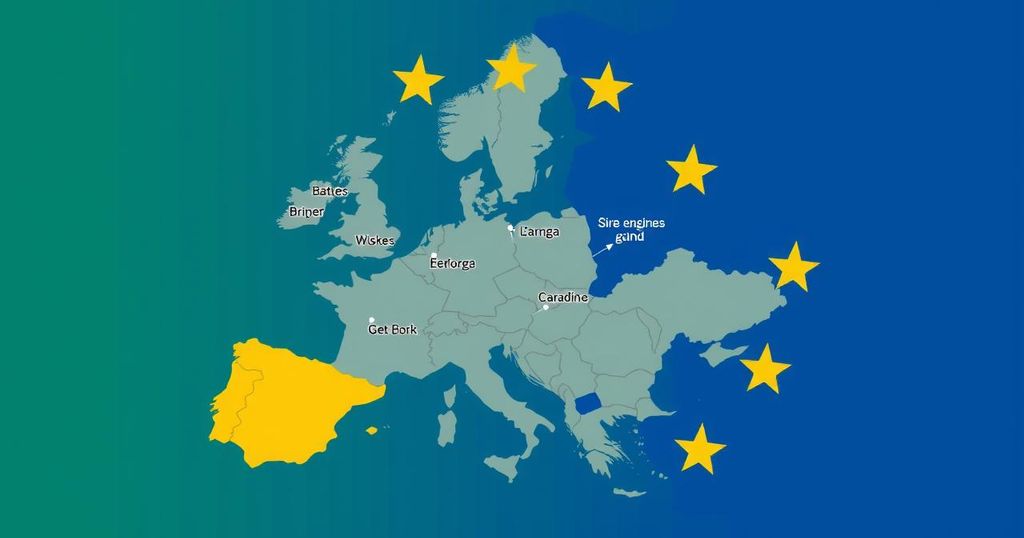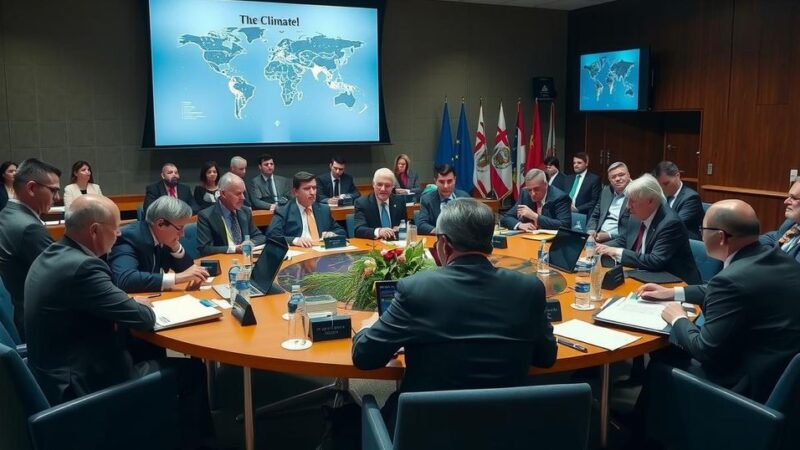The EU has increased its financial offer to poor nations affected by climate change to $300 billion annual funding during ongoing COP29 talks in Baku. Developing countries initially rejected a $250 billion proposal, underscoring their demands for greater support. Key discussions include annual reviews of fossil fuel phase-out efforts, facing opposition from Saudi Arabia and reflecting complexities in reaching a consensus amid heightened political challenges for wealthy nations.
In a crucial effort to revive stalled climate negotiations, the European Union has elevated its financial commitment to poor nations severely impacted by climate change to $300 billion annually. This development emerged during the ongoing UN climate talks in Baku, Azerbaijan, as negotiators worked tirelessly to bridge differences after an initial offer of $250 billion was categorically rejected. Key players such as the United States, Britain, and Japan are also involved in discussions, emphasizing the necessity of an annual review of fossil fuel phase-out efforts, a proposal facing resistance from oil-rich nations like Saudi Arabia.
Irish Climate Minister Eamon Ryan expressed optimism regarding reaching a consensus, emphasizing the importance of delivering a message of hope and reinforcing the effectiveness of multilateralism in addressing the climate crisis. He acknowledged the demand for increased financial support for developing nations while advocating a cessation of fossil fuel expansion. Ali Mohamed, representing the African Group of Negotiators, dismissed the initial monetary offer as inadequate, signaling the urgent need for progress to avert the failure of the COP talks.
Notably, over 300 civil society organizations have rallied behind developing countries, accusing wealthier nations of evading their legal obligations toward climate finance and highlighting the profound risk such inaction poses to billions of people and global ecosystems. Wealthy nations assert that expectations for greater direct funding are politically unrealistic amid shifting national leadership and rising skepticism about climate initiatives. Ultimately, the draft agreement suggests a comprehensive target of $1.3 trillion per year to combat climate challenges, although much of that funding is expected to emerge from private sectors rather than government sources.
The negotiating landscape remains dynamic, with a call from developing countries for a minimum of $500 billion annually and concerns regarding the adequacy of proposed increases when adjusted for inflation.
The article discusses the ongoing climate negotiations at COP29 in Baku, Azerbaijan, where the European Union has revised its financial offer to support developing nations facing the severe impacts of climate change. These discussions are crucial as they seek to address the ongoing climate crisis, particularly with wealthier nations attempting to fulfill their obligations while grappling with political shifts that challenge funding commitments.
In conclusion, the negotiations at COP29 reflect a critical juncture in the global effort to address climate change, as the EU raises its financial offer to address the needs of developing nations. With significant pressure from various stakeholders, including civil society organizations, there is a strong push for equitable climate finance and a call for developed nations to honor their commitments amidst growing political challenges. The outcome of these talks will play a pivotal role in shaping future climate action and support mechanisms.
Original Source: www.rfi.fr






